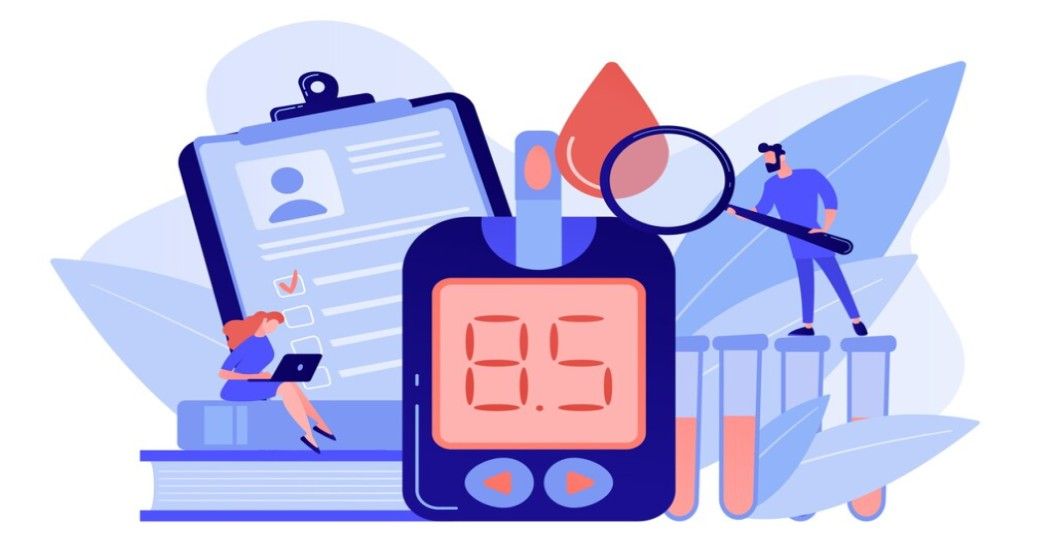Diabetes Management
Essential Steps to Safeguard Liver Health for Diabetics
2 min read
By Apollo 24|7, Published on - 14 August 2024
Share this article
0
0 like
_0.jpg?tr=q-80)
Diabetes is often linked to various complications, including an increased risk of liver damage. The liver plays a vital role in regulating glucose and blood sugar, making its health crucial for individuals with diabetes. Unfortunately, fat can accumulate in the liver even without alcohol consumption, elevating the risk of liver-related issues. By understanding this connection, individuals with diabetes can take proactive steps to protect their liver and overall health.
Guarding Your Liver Against Diabetes-Linked Harm
Maintaining a healthy weight is one of the key steps in fighting against non-alcoholic fatty liver disease (NAFLD), which can be a complication of diabetes. A reduction of 5-10% in body weight can help decrease the excess fat in the liver. Work Lifestyle modifications, a balanced diet, and a regular exercise regimen can support you in reaching and sustaining this goal.
Regulating Your Blood Sugar Levels
Regular monitoring and managing of your blood sugar levels are essential for ensuring your liver health. Engage closely with your medical team to devise an effective plan involving medication, dietary changes, and lifestyle modifications. Persistent high blood sugar levels can cause long-term damage to the liver.
Moderating Alcohol Consumption
Excessive alcohol intake can directly damage your liver cells. For individuals with diabetes, it's best to either limit or completely avoid alcohol to prevent further strain on the liver.
Regular Health Check-ups
Regular screening is vital since NAFLD often doesn't present any symptoms until it has progressed significantly. Your doctor may recommend specific blood tests to check liver enzyme levels and ultrasounds to monitor the health of your liver.
Eating a Healthy Diet
Certainly! Here's a revised paragraph with examples of healthy fats:
Incorporate a diet rich in fruits, green leafy and other vegetables, whole grains, lean proteins, garlic, and healthy fats into your daily routine. Healthy fats such as avocados, nuts, seeds, and olive oil can support liver function and overall health. Avoid saturated fats, added sugars, and refined carbohydrates, as they can increase the risk of fatty liver disease. By making these dietary changes, you can help safeguard your liver while managing your diabetes effectively.
With these steps aligned with a healthier lifestyle, you can reduce the risk of liver disease and other diabetes complications. Collaborate closely with your team of doctors to monitor and improve your liver health.
On a related note, Apollo's Super 6 program is designed to help individuals manage the challenges of type 2 diabetes through lifestyle changes and personalized support. This comprehensive program has shown success in reducing HbA1c levels, weight, waist circumference, and blood sugar. It provides consistent support to maintain a healthy lifestyle that ultimately benefits your overall health, including your liver.
Diabetes Management
Consult Top Diabetologists
View AllLeave Comment
Recommended for you

Diabetes Management
Simplifying Glucose Monitoring: New Innovations in Diabetes Care
Diabetes management is evolving with advances in glucose monitoring technology. From CGMs to promising non-invasive methods and sBGM to DSMT, these technological breakthroughs aim to make diabetes management less cumbersome.

Diabetes Management
The Link between Prediabetes and Polycystic Ovary Syndrome (PCOS)
With nearly 30% to 40% of women with PCOS also having prediabetes, awareness and effective management are key as thiisalso raises the risk of type 2 diabetes and heart disease. The good news is that lifestyle changes, medication, and regular monitoring can significantly reduce the risk and improve overall health.

Diabetes Management
Managing Diabetes with a Gluten-Free Diet
Managing both diabetes and celiac disease can be challenging but not unachievable. A strict gluten-free diet is beneficial but requires careful planning and regular monitoring. The presence of healthcare professionals can provide personalised dietary advice and help navigate the complexities of these conditions, ensuring optimal health outcomes.
Subscribe
Sign up for our free Health Library Daily Newsletter
Get doctor-approved health tips, news, and more.
Visual Stories

8 Fruits That are Incredibly Healthy for Diabetes
Tap to continue exploring
Recommended for you

Diabetes Management
Simplifying Glucose Monitoring: New Innovations in Diabetes Care
Diabetes management is evolving with advances in glucose monitoring technology. From CGMs to promising non-invasive methods and sBGM to DSMT, these technological breakthroughs aim to make diabetes management less cumbersome.

Diabetes Management
The Link between Prediabetes and Polycystic Ovary Syndrome (PCOS)
With nearly 30% to 40% of women with PCOS also having prediabetes, awareness and effective management are key as thiisalso raises the risk of type 2 diabetes and heart disease. The good news is that lifestyle changes, medication, and regular monitoring can significantly reduce the risk and improve overall health.

Diabetes Management
Managing Diabetes with a Gluten-Free Diet
Managing both diabetes and celiac disease can be challenging but not unachievable. A strict gluten-free diet is beneficial but requires careful planning and regular monitoring. The presence of healthcare professionals can provide personalised dietary advice and help navigate the complexities of these conditions, ensuring optimal health outcomes.

